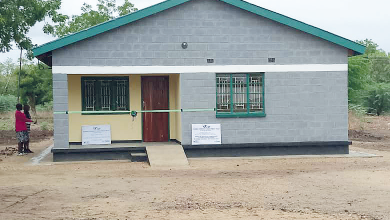Access to justice poor, MHRC probe establishes
Malawi Human Rights Commission (MHRC) says it has established that access to justice in the country is poor due to several challenges, including high cost of legal services, limited availability of courts and delayed judgements.
Presenting the report in Lilongwe yesterday, MHRC commissioner Teresa Ndanga said the commission’s inquiry established that in some cases people travel up to 60 kilometres (km) to access the courts.

Other findings include shortage of magistrates and judges as well as high cost of legal services, with private lawyers charging a minimum of K60 000 per hour.
“At the time of the enquiry, the Legal Aid Bureau had only 45 lawyers serving the whole country. Their services are limited to representing defendants in criminal matters and hardly reach rural communities,” said Ndanga, who is also chairperson of the commission’s Civil and Political Rights Committee.
She said the inquiry followed a request by the Legal Affairs Committee of Parliament in light of allegations of corruption in the Judiciary.
Ndanga said MHRC is not mandated to investigate corruption, as such, it handed over that responsibility to the Anti-Corruption Bureau (ACB).
Representing the Legal Aid Bureau, John Namalega Jnr said they are lobbying with government to include more lawyers in the bureau, adding that currently their lawyers are handling about 500 cases each, which is not practical.
Taking her turn, Malawi Law Society (MLS) sub-committee member Zaithwa Milanzi acknowledged that access to legal services is a challenge for the average citizen, but said there are mechanisms in place to support those in need.
Other findings of the report include judicial officers’ failure to adhere to their code of ethics, creating a general perception that judicial officers are untouchable.
The report added that lack of discipline among judicial officers has also contributed to impunity which has led to loss of public trust.
The report also raised a concern over political interference in the appointment of judges and Justices of Appeal by the President, noting that the arrangement compromises judicial independence.
The report has also revealed that absence of joint accountability mechanisms, inefficient case management systems that lead to missing files and poor referrals, as well as poor handover processes during transfers of judicial officers affect access to justice in the country.





